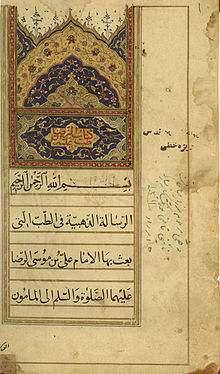Online Marketing for your business website get more sales & daily traffic new


In Greece, the Greek physician Hippocrates, the "father of modern medicine",[40][41] laid the foundation for a rational approach to medicine. Hippocrates introduced the Hippocratic Oath for physicians, which is still relevant and in use today, and was the first to categorize illnesses as acute, chronic, endemic and epidemic, and use terms such as, "exacerbation, relapse, resolution, crisis, paroxysm, peak, and convalescence".[42][43] The Greek physician Galen was also one of the greatest surgeons of the ancient world and performed many audacious operations, including brain and eye surgeries. After the fall of the Western Roman Empire and the onset of the Early Middle Ages, the Greek tradition of medicine went into decline in Western Europe, although it continued uninterrupted in the Eastern Roman (Byzantine) Empire.
Most of our knowledge of ancient Hebrew medicine during the 1st millennium BC comes from the Torah, i.e. the Five Books of Moses, which contain various health related laws and rituals. The Hebrew contribution to the development of modern medicine started in the Byzantine Era, with the physician Asaph the Jew.[44]

The concept of hospital as institution to offer medical care and possibility of a cure for the patients due to the ideals of Christian charity, rather than just merely a place to die, appeared in the Byzantine Empire.[45]
Although the concept of uroscopy was known to Galen, he did not see the importance of using it to localize the disease. It was under the Byzantines with physicians such of Theophilus Protospatharius that they realized the potential in uroscopy to determine disease in a time when no microscope or stethoscope existed. That practice eventually spread to the rest of Europe.[46]
After 750 CE, the Muslim world had the works of Hippocrates, Galen and Sushruta translated into Arabic, and Islamic physicians engaged in some significant medical research. Notable Islamic medical pioneers include the Persian polymath, Avicenna, who, along with Imhotep and Hippocrates, has also been called the "father of medicine".[47] He wrote The Canon of Medicine which became a standard medical text at many medieval European universities,[48] considered one of the most famous books in the history of medicine.[49] Others include Abulcasis,[50] Avenzoar,[51] Ibn al-Nafis,[52] and Averroes.[53] Persian physician Rhazes[54] was one of the first to question the Greek theory of humorism, which nevertheless remained influential in both medieval Western and medieval Islamic medicine.[55] Some volumes of Rhazes's work Al-Mansuri, namely "On Surgery" and "A General Book on Therapy", became part of the medical curriculum in European universities.[56] Additionally, he has been described as a doctor's doctor,[57] the father of pediatrics,[54][58] and a pioneer of ophthalmology. For example, he was the first to recognize the reaction of the eye's pupil to light.[58] The Persian Bimaristan hospitals were an early example of public hospitals.[59][60]
Comments
Post a Comment